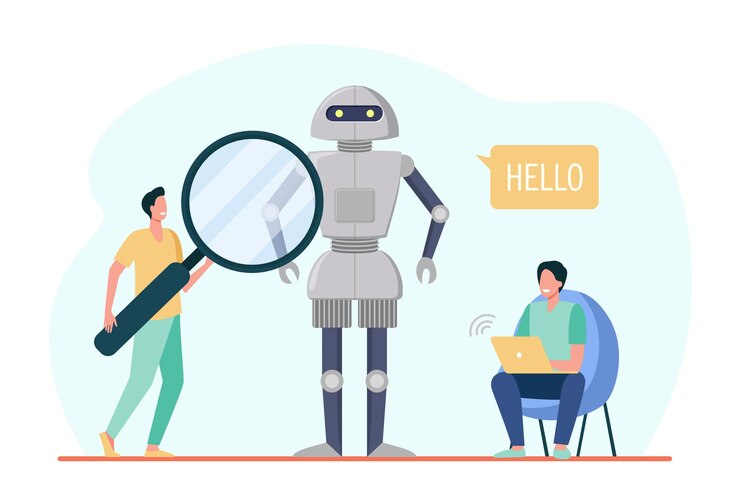In our modern era of interconnected global communication, the rise of machine translation has become a defining feature of linguistic landscapes. As technology advances, the integration of automated translation tools prompts a critical examination of their impact on the timeless craft of human translation. This article seeks to unravel the intricate relationship between machine and human translation, exploring each approach’s nuances, advantages, and potential pitfalls.
Pros of Machine Translation:
Machine translation’s ascent has been propelled by its undeniable advantages. Foremost among these is its efficiency and speed, which render it invaluable for handling vast volumes of content within tight timeframes. Machine translation’s accessibility offers a quick and cost-effective solution for basic translation needs, providing a foundational layer upon which human translators can build and refine.
Beyond mere speed, machine translation presents a boon for businesses and individuals seeking rapid translations for everyday communication. It’s a cost-effective solution for immediately translating straightforward content, freeing human translators to focus on more complex and nuanced linguistic tasks.
Cons of Machine Translation:
However, the allure of machine translation comes with its challenges. Accuracy remains a concern, especially in the realm of nuanced or specialised content. The rigid algorithms powering machine translation may struggle to grasp the subtleties and context-dependent meanings embedded in human languages. This raises questions about the potential for misinterpretations, particularly in fields where precision is paramount, such as legal or medical translation.
Cultural nuances pose another significant challenge. Machine translation often fails to capture the richness of idiomatic expressions and cultural intricacies, where human translators excel. Language artistry, with its play of metaphor and cultural references, is a domain where machines currently struggle to tread with finesse.
Human Touch in Translation:
Herein lies the essence of the human touch in translation—a quality that remains irreplaceable. Human translators bring a unique set of skills and cultural insights to the linguistic table. Their ability to discern context, interpret idiomatic expressions, and infuse translations with creativity ensures a deeper understanding of the intricacies embedded in language.
Human translators act not just as linguistic conduits but as cultural ambassadors, preserving the authenticity and emotional nuances that machine translation may inadvertently dilute. This personalization is crucial, especially in industries where communication extends beyond the conveyance of information to the transmission of sentiment and cultural identity.
The Collaborative Approach:
Exploring collaborative scenarios presents a more nuanced perspective than framing machine translation as an adversary. Successful collaborations leverage the strengths of both machine and human translation. Automated tools provide the speed and foundational translations, acting as a preliminary layer that human translators can refine, ensuring accuracy, cultural fidelity, and creativity.
The collaborative approach acknowledges that the future of translation may not be an “either-or” scenario but rather a harmonious blend of machine efficiency and human intuition. In this model, technology is not a replacement but a facilitator, allowing human translators to focus on the aspects of language that require nuanced understanding, interpretation, and cultural sensitivity.
The Future Landscape:
As we gaze into the future, the evolving relationship between human translators and machine translation is poised for transformation. Predictions suggest a dynamic coexistence where emerging technologies contribute to reshaping the translation industry. This evolution prompts us to reconsider our understanding of the translator’s role in the face of advancing automation.
The introduction of artificial intelligence, neural machine translation, and other cutting-edge technologies points toward a future where repetitive tasks may be automated, enabling human translators to engage in more complex and intellectually demanding aspects of their craft. Rather than rendering human translators obsolete, technology becomes an enabler, streamlining processes and expanding the possibilities for linguistic professionals.
The collaborative efforts of human translators and machine translators may lead to a redefinition of roles, with each complementing the other’s strengths. As technology advances, we can anticipate a landscape where human translators focus on higher-order linguistic and cultural tasks while machines handle routine translations efficiently.
Conclusion:
In conclusion, the rise of machine translation challenges us to navigate a nuanced landscape where collaboration, not competition, defines the future. Embracing the strengths of automated tools and human translators ensures a holistic approach to linguistic challenges. Combining machine efficiency and human intuition preserves the essence of communication in an increasingly interconnected world.
As we move forward, the key lies in striking a delicate balance that recognises the invaluable contributions of both machine and human translation. In this harmony, we discover not a threat to traditional translation but a transformative force that propels the field into new realms of possibility. The human touch in translation remains a beacon, guiding us through the ever-evolving landscape of language, where artistry and technology coalesce to shape the future of communication.
EgyPerfect Certified Translation Agency is your choice for certified translation services. Boasting accreditation from various embassies and the Real Estate Registration & Documentation Authority, our expertise covers a wide range of certified translations, including but not limited to:
- Birth Certificates Translation; Family Registration Documents Translation; Marriage and Divorce Certificates Translation; Travel Records Translation; Transcripts of Grades Translation; Graduation Certificates Translation; Criminal Records Translation; Personal ID cards Translation; Courts’ Rulings Translation; Entire Types of Contracts, such as lease and sales contracts Translation; Military Service Certificates Translation; Driver’s licences Translation; Salary Statements Translation; Bank Statements Translation; Pension Certificates Translation; Power of Attorney Translation; Expertise Certificates Translation; Commercial Registries Translation, and Tax Cards Translation.
Additionally, we specialise in real estate documentation, providing Certified Translators & Certified Translation Services for the Real Estate Registration & Documentation Authority and the General Authority for Investment and Free Zones in Nasr City.
Languages we cover:
Arabic, English, French, Italian, German, Spanish, Greek, Swedish, Turkish, Russian, Chinese, Dutch, Hebrew, Japanese, Korean.


